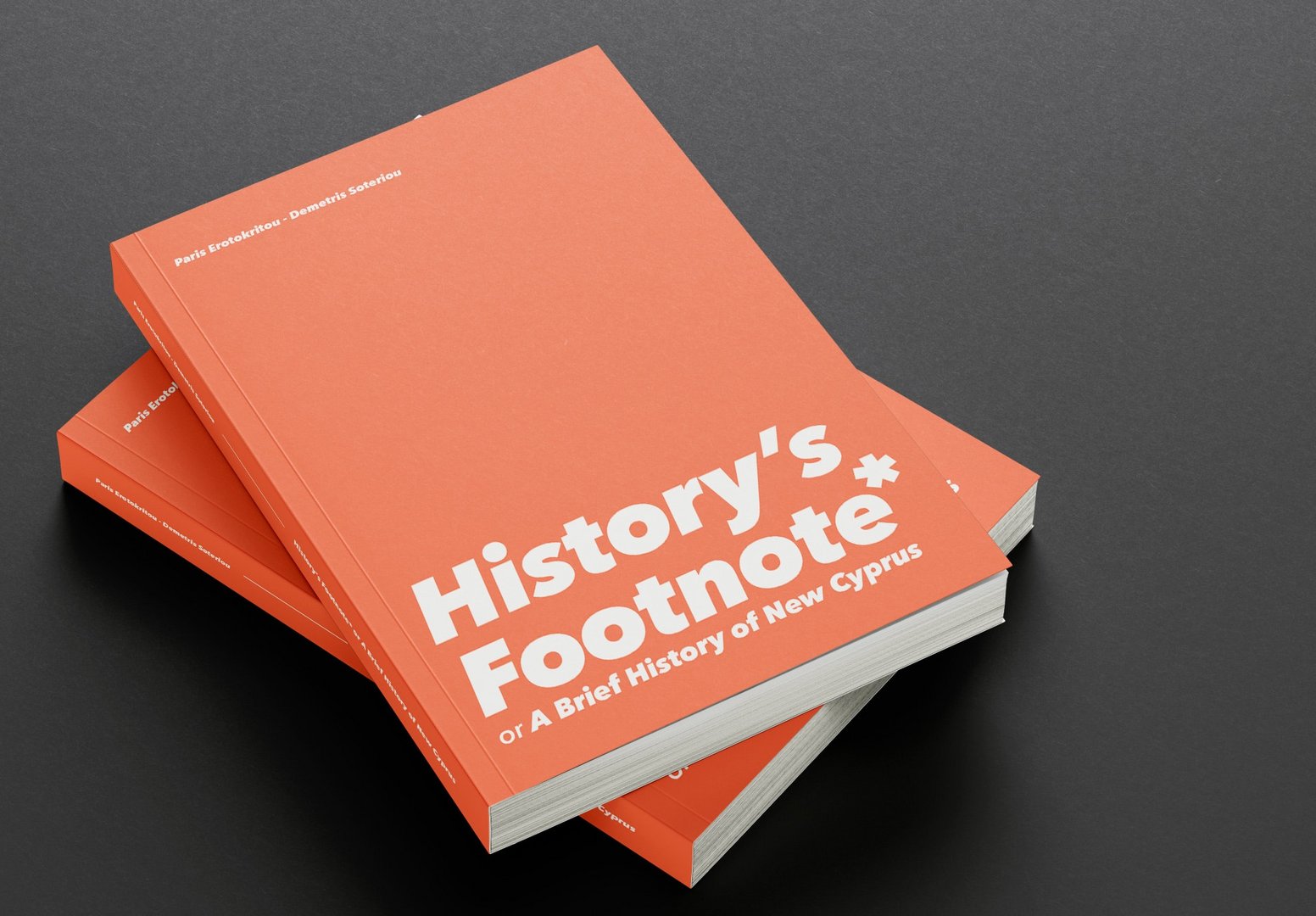‘Cyprus is ripe for revolution. We’ve had everything else: war, invasion, occupation, economic crisis…’ ALIX NORMAN meets the author of a divisive, satirical novel
‘Three months before the general election, in one of his drunken fits at his daughter’s extravagant 21st birthday beach party, the president ordered the 2nd artillery division of the Cyprus National Guard to fire 21 commemorative shells to honour the coming of age of his beloved offspring.
‘Unfortunately, in the absence of commemorative shell-shot practice, the soldiers of the Cyprus National Guard inadvertently blew up the island’s main electricity plant, which was nearby.
‘This caused a three-month, nationwide blackout and an economic recession the scale of which the island had never seen. Despite the public outcry, the president insisted on running for office again…’
This is the opening of History’s Footnote: A History of New Cyprus, a satirical novel penned by an author with a bent for weaving the recognisable into something both unforgivingly familiar and yet wholly strange.
“In essence, it’s a simple story,” suggests author Paris Erotikritou. “But stretched into macabre territory, and exaggerated for comedic effect. Through satire, it peels back the layers of our society, revealing the absurdities, contradictions, and idiosyncrasies that define us. It’s a mirror held up to Cyprus.”
A theatre director by profession, this is Paris’ first effort at fiction. And it’s like nothing you’ve read before! Sparklingly witty, it’s equally offensive and empathic, real and fictional. A book in which the footnotes (exactly 74 of them – nothing is by chance!) are just as important as the narrative, and the fantastical illustrations of graphic designer Demetris Soteriou tell another story altogether!

mockups-design.com
The plot revolves around Mr Theocharous and Gakujii Nakamoto. The former is a local Mafia boss whose empire has been built on illegal songbird trading; the latter a heartbroken geneticist with a lust for cloning. Together, the pair’s paradoxical friendship leads to the establishment of a New Cyprus on a remote island in the Japanese archipelago.
So far, so bizarre, right? Well, not when you realise that the ill-fated explosion is a reference to the Mari disaster; the blackout represents the haircut of 2013; and ambelopoulia equal wealth, power, and corruption.
“This is satire,” explains Paris, “so it’s all the things I want to say transported to a parallel realm. You’ll recognise the endemic corruption that permeates every level of local business and politics; the invasion of 1974 and the subsequent decades of trauma; the monsters and angels who peopled the narrative of our schooling…
“You’ll see a nation endlessly on the defensive, denied its freedom and constantly vigilant; a land that’s substituted culture for money, and has reaped the resultant tensions; a government that has abandoned its people, and whose empty promises have been exposed as wanton manipulation.
“Ultimately,” he propounds, “you find that our island is in turmoil.”
You’d be forgiven, thus far, for thinking Paris is a starving artist with an axe to grind. In fact, this highly successful theatre and film director trained at RADA, and has staged productions around the world. He’s worked with the Royal Shakespeare Company and National Youth Theatre in the UK, collaborated with the European Capital of Culture 2017 and the Kypria International Festival, and founded the award-winning Fresh Target Theatre Ensemble.
In short, he’s a man with both the vision to see the world’s complexities and contradictions, and the drive to make them thought-provokingly entertaining.
“I wrote History’s Footnote for my own sanity,” smiles the softly spoken 43-year-old. “To make sense of the destruction of the Cypriot dream. Somewhere post-1974, we’d been led to believe that money and power meant safety. But now we’ve seen that’s not true: the trauma remains, the problems persist. And I think a lot of people feel suffocated…”
Paris references the recent events in Pyla. He talks of MPs openly involved in illegal activities; a plate of ambelopoulia is mentioned!

History’s Footnote is, of course, fiction. “It’s a sort of documentary, a mockumentary,” explains Paris. “It’s trying to say that in Cyprus, anything can happen. And we just accept it. Or we have until now – now things are starting to change. I feel the younger generations have seen through the lies and are querying the status quo; they’re beginning to voice their objections. And for the old guard, for the privileged elite, like Mr Theocharous, this spells uncountable change…”
Even as the novel opens, we see our protagonist struggling with a changing Cyprus. Having ensured the President’s re-election (‘The strategy was simple yet effective. Mr Theocharous’ thugs visited the households of the poorest two-thirds of the population and offered an average of 200 euros per vote. At gunpoint’), he’s nonetheless lost when it comes to more private matters…
His wife, guided by a suspect life coach, buys her friends. His son performs father-shaming art. And his daughter is a militant vegan activist who organises large-scale body-slashing events around Europe. All are extensively bankrolled by Mr Theocharous, whose fortune has been built on corrupt activities. But, with change in the air, our protagonist determines to bring down the entire country rather than suffer the consequences alone.
While many of the refences are subtle, and the story itself complex, History’s Footnote is a fascinating debut – though certainly not for every reader. Scathing and raw (beware the strong language!), it paints a picture of an island that’s politically lost; a place that’s ripe for change.
“And yet,” says Paris, “when we finally arrive at the New Cyprus, we find nothing has really changed at all…”
‘As the years passed, the country’s reality was dominated by the New Cyprus Problem, and a twisted sense of normality set in. While the Queen of the New Cyprus threw lavish party after lavish party, a large section of the population still lived in poverty, abandoned, uncared for, and without the slightest sense of direction…’
Published in English, History’s Footnote is available from all good bookshops on the island, and from GoodPress in Britain. For more information on the book, visit the Instagram account @newcyprusdeal







Click here to change your cookie preferences